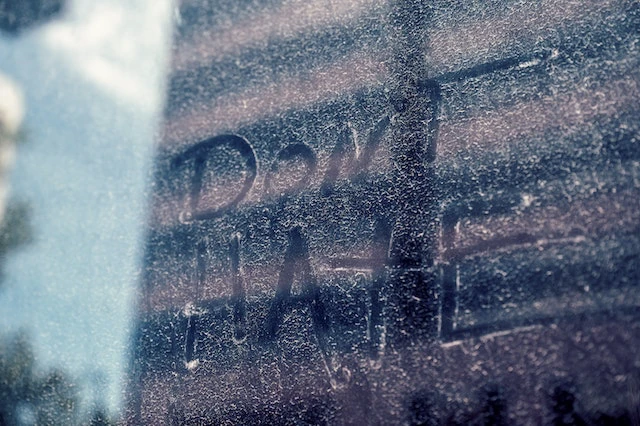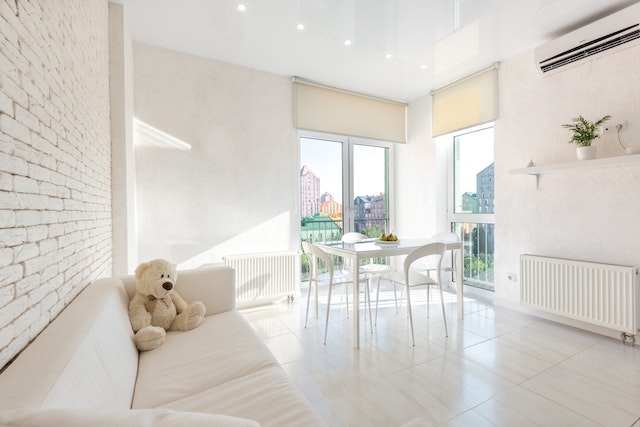Mastering HVAC Maintenance: A Guide to Efficient and Effective Heating and Cooling Care
In the realm of modern living, HVAC systems play a pivotal role in ensuring indoor comfort and well-being. These systems, encompassing heating, ventilation, and air conditioning, are the unsung heroes that keep us cozy during frigid winters and cool during scorching summers. The delicate balance they provide enhances not only our physical comfort but also our overall quality of life. This article delves into the essential domain of HVAC maintenance, shedding light on the vital practices that ensure efficient and effective functioning of these systems.

With the rapid advancements in technology and the growing awareness of energy efficiency, maintaining HVAC systems has become more critical than ever. Proper maintenance not only extends the lifespan of the equipment but also guarantees optimal performance, keeping energy bills in check and preventing unwelcome surprises like sudden breakdowns. As we delve into the intricacies of HVAC maintenance, we'll explore seasonal checklists, do-it-yourself tips, and the importance of professional inspections. By understanding how to care for your heating and cooling systems, you're not only investing in your own comfort but also contributing to a greener and more sustainable future.
The Basics of HVAC Systems
At the heart of our modern living spaces, HVAC systems orchestrate the delicate dance between heating, ventilation, and air conditioning. These intricate systems consist of various components, each playing a crucial role in maintaining indoor comfort. For instance, the furnace, often the cornerstone of heating systems, ignites and warms the air, which is then distributed through ductwork. In contrast, air conditioning units cool the air by removing heat and moisture, offering a respite from sweltering temperatures. Ventilation systems circulate fresh air while simultaneously filtering out impurities, ensuring a healthy and breathable indoor environment.
Understanding the synergy between heating and cooling systems is essential for comprehending the holistic functioning of HVAC systems. Consider a scenario where temperatures plunge during the winter. The heating system activates, warming the air before it's dispersed throughout the building. However, this heated air also contains moisture. Consequently, during the colder months, humidity levels might drop, leading to drier indoor air. This is where the ventilation system steps in, bringing in fresh outdoor air and moderating humidity levels. This interconnectedness showcases the intricate web of HVAC components, each contributing to indoor comfort in its unique way.
The Significance of Regular Maintenance
Regular HVAC maintenance stands as the cornerstone of ensuring optimal performance, longevity, and energy efficiency of these intricate systems. Just as a finely-tuned instrument produces melodious music, a well-maintained HVAC system orchestrates a symphony of comfortable indoor temperatures and purified air. The benefits of consistent upkeep are manifold. By routinely inspecting, cleaning, and servicing the various components, homeowners not only guarantee a cozy living environment but also prevent potential hazards.
Consider the scenario of a clogged air filter in an HVAC system. A seemingly innocuous component, the air filter, plays a pivotal role in filtering out airborne particles and allergens. If neglected, a dirty filter can obstruct airflow, causing the system to strain and consume more energy. This not only results in higher utility bills but also accelerates wear and tear on components, potentially leading to expensive repairs or even a complete breakdown. Proper maintenance, including the timely replacement of filters, keeps the system running smoothly and efficiently, reducing the chances of unexpected disruptions and enhancing overall indoor air quality.
Seasonal HVAC Maintenance Checklist
As the seasons change, so do the demands placed on your HVAC system. To ensure seamless transitions between the sweltering heat of summer and the chilly days of winter, following a comprehensive seasonal maintenance checklist is essential. During spring, focus on your cooling system. Begin by cleaning or replacing air filters to facilitate unrestricted airflow and maximize energy efficiency. Clear debris around the outdoor unit, ensuring proper ventilation. Check refrigerant levels and test the thermostat to guarantee accurate temperature control. By addressing these tasks, you not only optimize cooling performance but also prevent potential breakdowns during peak usage months.
When autumn arrives and the temperatures start to drop, it's time to shift your attention to heating system maintenance. Start by inspecting and cleaning the furnace or heat pump. Lubricate moving parts to minimize friction and wear. Check the ignition system and pilot light, ensuring that they're functioning properly. Just as with cooling systems, air filters play a crucial role in heating efficiency, so remember to replace them. As the heart of your HVAC system, the heat exchanger also deserves a close examination for any cracks or signs of wear. While homeowners can perform some maintenance tasks themselves, it's highly recommended to schedule professional inspections at least once a year. Trained technicians can identify potential issues that may not be evident to the untrained eye, ensuring your HVAC system remains in peak condition throughout the year.
DIY HVAC Maintenance Tips
Engaging in regular DIY maintenance for your HVAC system not only enhances its efficiency but also extends its lifespan. One of the simplest yet most effective tasks is changing air filters regularly. Clogged filters restrict airflow, causing your system to work harder and consume more energy. By replacing filters as recommended by the manufacturer, you can improve energy efficiency by up to 15%, resulting in lower utility bills and reduced strain on your HVAC components.
Cleaning vents, ducts, and coils is another vital aspect of HVAC maintenance. Dust, debris, and dirt can accumulate over time, hindering the system's performance and indoor air quality. Regularly vacuuming and wiping down vents, as well as scheduling professional duct cleaning, can greatly enhance airflow and prevent allergens from circulating in your home. Additionally, keeping coils clean is crucial for both heating and cooling efficiency. Dirty coils can increase energy consumption by up to 30%, making routine cleaning an effective way to save on energy costs. Lastly, setting your thermostat to appropriate temperatures can contribute to energy savings. Adjusting the thermostat a few degrees lower in winter and higher in summer can significantly impact your energy consumption without sacrificing comfort. These DIY maintenance practices empower homeowners to take an active role in optimizing their HVAC system's performance and reducing their environmental footprint.
Professional HVAC Maintenance
Professional HVAC maintenance plays a pivotal role in ensuring the longevity and optimal performance of your heating and cooling system. While DIY tasks are valuable, the expertise and thoroughness of trained professionals are essential for identifying potential issues that might go unnoticed otherwise. Scheduling annual HVAC inspections and tune-ups with licensed technicians can provide you with peace of mind knowing that your system is operating at its best.
While DIY tasks are valuable, the expertise and thoroughness of trained professionals are essential for identifying potential issues that might go unnoticed otherwise.
During these professional visits, technicians conduct comprehensive checks, clean essential components, and make necessary adjustments. They can identify issues before they escalate into major problems, saving you from expensive repairs and ensuring your system operates efficiently throughout the year. Moreover, professional maintenance can lead to better indoor air quality, as technicians often address issues related to ductwork cleanliness and filter replacement. By investing in regular professional HVAC maintenance, you're making a proactive commitment to the comfort, safety, and energy efficiency of your home.
Troubleshooting Common HVAC Issues
Encountering common HVAC issues can be frustrating, but with a bit of troubleshooting knowledge, you can often resolve them before they escalate. If you notice reduced airflow from vents, it could be due to a clogged air filter, blocked ducts, or even issues with the blower motor. Regularly checking and changing air filters and ensuring that vents are unobstructed can alleviate airflow problems and improve system efficiency.
Uneven temperature distribution is another issue that homeowners sometimes face. Rooms that are too hot or too cold compared to others can be indicative of a poorly balanced system or blocked vents. It's essential to make sure that all vents are open and unblocked to allow for proper airflow throughout your home. Additionally, using fans strategically to circulate air can help even out temperature disparities and enhance comfort.
Unusual noises or odors from your HVAC system can signal underlying problems that require attention. For example, grinding or squealing sounds might indicate issues with the blower motor or fan belt, while musty odors could point to mold growth within the system. Addressing these issues promptly through professional inspection and maintenance can prevent further damage and ensure your HVAC system operates smoothly and efficiently. By familiarizing yourself with these troubleshooting steps, you can save time, money, and potential discomfort by identifying and rectifying common HVAC issues.
Energy Efficiency and Cost Savings
Investing in regular HVAC maintenance not only ensures the longevity and reliability of your system but also contributes to significant energy savings and reduced utility costs. Well-maintained HVAC systems operate more efficiently, consuming less energy to achieve the desired indoor temperature. For example, a dirty or clogged air filter can force your HVAC system to work harder, resulting in higher energy consumption. By regularly cleaning or replacing air filters, you can help your system run smoothly and use less energy.
Investing in regular HVAC maintenance not only ensures the longevity and reliability of your system but also contributes to significant energy savings and reduced utility costs.
Proper maintenance also helps identify and address issues that could otherwise lead to energy wastage. Leaky ducts, for instance, can cause conditioned air to escape before reaching its intended destination, causing your system to work overtime to compensate. By sealing and insulating ducts, you can prevent this wastage and ensure that the air you're paying to heat or cool is efficiently delivered to your living spaces.
When your HVAC system runs efficiently, it not only reduces your environmental impact but also translates to substantial cost savings on your utility bills. Over time, these savings can add up significantly, making regular maintenance an investment that pays off in both the short and long term.
Upgrading and Replacing HVAC Systems
Recognizing the right time to upgrade or replace your HVAC system is crucial for maintaining optimal indoor comfort and efficiency. If your current system is frequently breaking down, requiring extensive repairs, or not providing consistent temperature control, it might be a sign that it's time for an upgrade. Advances in HVAC technology have led to the development of energy-efficient models that can offer improved performance and reduced energy consumption compared to older systems.
When considering a replacement, exploring energy-efficient options is a smart choice. Energy-efficient HVAC systems, such as those with higher SEER (Seasonal Energy Efficiency Ratio) ratings for air conditioners or AFUE (Annual Fuel Utilization Efficiency) ratings for furnaces, can significantly lower your energy bills while providing better temperature control. For instance, a new air conditioning unit with a higher SEER rating can use up to 50% less energy than a system with a lower rating, leading to substantial long-term savings. By investing in a new system that meets or exceeds energy efficiency standards, you not only enjoy enhanced comfort but also contribute to reducing your carbon footprint.
When considering a replacement, exploring energy-efficient options is a smart choice.
Conclusion
In conclusion, mastering HVAC maintenance is essential for ensuring a comfortable and efficient living environment while also maximizing cost savings. Regular maintenance, both through professional inspections and DIY tasks, can help prevent potential breakdowns, extend the lifespan of your HVAC system, and maintain its optimal performance. By adhering to a seasonal maintenance checklist, keeping air filters clean, and addressing common issues promptly, you can significantly improve the energy efficiency and overall functionality of your system.
By prioritizing HVAC maintenance, you're not only enhancing your indoor comfort but also making a positive impact on your household budget. Well-maintained HVAC systems operate more efficiently, leading to lower energy bills and reduced carbon emissions. Remember, investing a little time and effort into HVAC maintenance now can save you from expensive repairs or replacements down the line. With a commitment to efficient heating and cooling care, you'll enjoy consistent comfort, improved air quality, and significant financial benefits in the long run.
Looking for local agents?
Search, compare and connect with top-ranked agents. Find the best local agent & lower rates.




